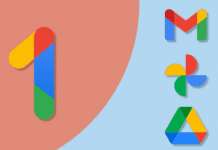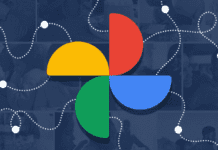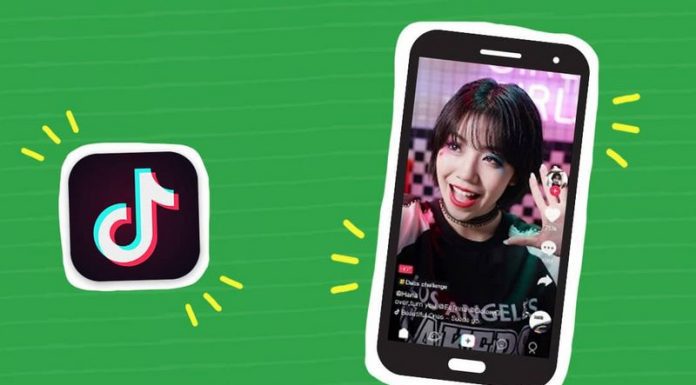“Tell Me a Joke Google!” is a cry that captures a significant shift in our digital culture. It reflects how we’ve come to rely on search engines and virtual assistants not just for information but also for entertainment by fusing technology and humour. In this Tell Me a Joke Google article, we’ll explore the intersection of technology and humour, explore some humour, and even compile a list of our all-time favourite internet one-liners. Let’s start laughing! So let’s check out everything about the Tell Me a Joke Google article.
Who would have imagined that, in a world flooded with data, algorithms, and super-fast processors, we’d ask our devices, “Tell Me a Joke Google!” A fascinating fusion of our insatiable appetite for humour and the technological wonders of the twenty-first century can be found in this seemingly innocuous request. It becomes clear that our high-tech tools are about more than just function as we instruct them to produce giggles. Explore the world of laugh-out-loud humour with us as we bring together digital intelligence and the universal human love of humour. Now let’s get to know more about this Tell Me a Joke Google guide.
1. The Age of Digital Wit
Jokes were exchanged at dinner tables, among school friends, or through joke books prior to the invention of the internet. In a few decades, we have a new medium—digital platforms—while these traditions continue to be practised.
1.1. Jokes in Bytes and Pixels:
- Social Media: Platforms like Twitter and TikTok have become hotbeds for comedic content. In just a few characters or seconds, creators can have us in splits.
- Memes: A picture is worth a thousand words, or in the case of memes, a thousand laughs. They’ve become the internet’s preferred way of conveying humour.
1.2. Virtual Comedians: Enter the world of Siri, Alexa, Google, and other virtual assistants. Their primary function might be to provide answers or perform tasks, but their programmers, aware of humanity’s need to laugh, have infused them with wit.
2. Why Do We Ask Machines for Jokes?
It’s an interesting phenomenon. Why do we seek humour from our technology?
- Novelty: Initially, it was the novelty. Discovering that these voice-activated machines could Tell Me a Joke Google was surprising and fun.
- Emotional Connection: On a deeper level, humour establishes a bond. It humanizes the device, making interactions more enjoyable.
3. Top Jokes Google Might Share
Are you curious what you might find if you search for a Tell Me a Joke Google? Here is a list of humorous expressions:
- Why did the scarecrow win an award? Because he was outstanding in his field!
- Did you hear about the mathematician who’s afraid of negative numbers? He’ll stop at nothing to avoid them.
- Why was the math book sad? It had too many problems.
4. The Power of Laughter
The pleasure we experience from jokes is supported by science. Laughing:
- Releases Endorphins: These are our body’s feel-good chemicals.
- Reduces Stress: A hearty laugh can lower cortisol levels.
- Improves Immune Function: Believe it or not, laughter can even boost our immune system.
5. Digital Humor Across the Globe
| Country | Popular Digital Joke |
|---|---|
| USA | “Why did the chicken join a band? Because it had the drumsticks!” |
| UK | “Why did the Queen go to the dentist? To get her “crown” checked!” |
| India | “Why did the chapati go for a walk? It wanted to get “rolled”!” |
| Australia | “Why did the kangaroo stop drinking coffee? It made him jumpy!” |
6. In Conclusion
So this is all about the Tell Me a Joke Google article guide. A universal language, humour has always been and always will be. Although the Tell Me a Joke Google methods we employ to share and enjoy it may change, the fundamentals never change. The goal is straightforward: to spread joy, whether it comes from a friend sharing a Tell Me a Joke Google or a quirky response from a search engine.
Hope you like this Tell Me a Joke Google from here now. Therefore, the next time you’re down or just need a quick pick-me-up, just shout, “Tell Me a Joke Google!” and let the digital era of humour brighten your day. Hope you enjoy checking this type of Tell Me a Joke Google content.
Humour appears as an unanticipated but delightful bridge in the dance between humans and machines. We’re not just looking for a quick chuckle when we ask, “Tell Me a Joke Google!” We’re longing for a connection that goes beyond circuits and silicon. It’s a testament to our adaptable nature that we can find humour and joy in even the most unlikely digital spaces.
Let’s treasure these amusing exchanges that serve as a timely reminder of the human spirit in the digital age as technology advances. After all, one of life’s greatest pleasures is a good laugh, whether it comes from a friend or a search engine. If you enjoy reading the Tell Me a Joke Google then please do share Tell Me a Joke Google with others as well also.
People Also Ask (Frequently Asked Questions)
-
Why are virtual assistants programmed to tell jokes?
- Virtual assistants are designed to be interactive and user-friendly. By embedding humour, developers aim to create a more relatable, engaging, and human-like experience for users. It adds a layer of warmth and personality to otherwise mechanical interactions.
-
Can virtual assistants understand humour?
- While virtual assistants can be programmed to recognize joke structures or humorous phrases, they don’t “understand” humour in the same way humans do. They don’t feel amusement; they simply process data and respond based on their programming.
-
How often are virtual assistant’s joke databases updated?
- The frequency of updates varies by platform and developer. However, as technology becomes more sophisticated and user feedback increases, many companies routinely update their humour databases to keep interactions fresh and relevant.
-
Is there a way to customize the type of jokes a virtual assistant tells?
- Currently, most virtual assistants offer a standard set of jokes. However, with advancements in AI personalization, it’s anticipated that future versions may allow users to customize joke preferences based on their humour type.
-
Do all virtual assistants have the same set of jokes?
- No, each virtual assistant—be it Siri, Alexa, or Google—has its unique database. While there might be some overlap, developers strive to give each platform its distinct flavour of humour.
-
Why is humour considered an important aspect of AI development?
- Humour adds a layer of relatability and comfort. As AI becomes a more integral part of our daily lives, making these systems engaging, approachable, and relatable is crucial. Humour bridges the gap, ensuring that interactions feel less sterile and more human-like.
-
Do virtual assistants adapt their jokes based on region or culture?
- Yes, many virtual assistants are designed to cater their responses, including jokes, based on the region or cultural settings of the device. This ensures that the humour is relatable and avoids potential cultural insensitivities.
-
How do developers ensure that jokes from virtual assistants remain family-friendly?
- Jokes incorporated into virtual assistants are meticulously curated to ensure they are universally acceptable and avoid potentially offensive content. User feedback also plays a crucial role in refining and improving the joke selection.
-
Is there any research on the impact of digital humour on human emotions?
- Absolutely! Several studies have been conducted on human-AI interaction and its effects on human emotions. Many findings suggest that humour when integrated into AI, enhances user experience by creating positive emotions and increasing trust in the technology.
-
Do virtual assistants use trending internet jokes or memes in their responses?
- While virtual assistants primarily rely on a pre-set database of jokes, some advanced models are equipped to recognize and respond to trending internet jokes or memes, keeping their humour repertoire updated and current.
-
Can users submit jokes or humour feedback to virtual assistant developers?
- Some platforms do allow users to submit feedback, which can include jokes or suggestions for humorous responses. This feedback is invaluable for developers aiming to continuously enhance the user experience.
-
Are there any virtual assistants designed specifically for comedy or humour?
- While most popular virtual assistants aim for a balance between functionality and entertainment, there are specialized chatbots and apps developed with a primary focus on humour and comedy. These are perfect for those looking for a consistent dose of digital laughter.
Knowing this information not only helps you have fun conversations but also demonstrates how technology and human emotion can coexist in today’s world. Ask your virtual assistant for a Tell Me a Joke Google the next time you’re with friends or family; you might be pleasantly surprised by the response! Understanding these subtleties in our everyday tech interactions demonstrates how closely our human tendencies are linked to the digital tools we use. It demonstrates how technology, which is frequently viewed as impersonal and cold, is being developed to speak to our innate desire for connection and humour.











![[Buy Now] Roborock S50 Smart Robot Vacuum Cleaner Reviews ‘Offer’ Roborock S50 Smart Robot Vacuum Cleaner](https://www.techinpost.com/wp-content/uploads/2018/02/New-Original-XIAOMI-Roborock-S50-S51-Robot-Vacuum-Cleaner-2-Smart-Cleaning-for-Home-Office-Sweep-324x235.jpg)

![[Buy Now] Onda V80 Review Tablet PC ‘Offer’ Price (Buying Guide) Onda V80](https://www.techinpost.com/wp-content/uploads/2018/02/image001-317x235.png)

